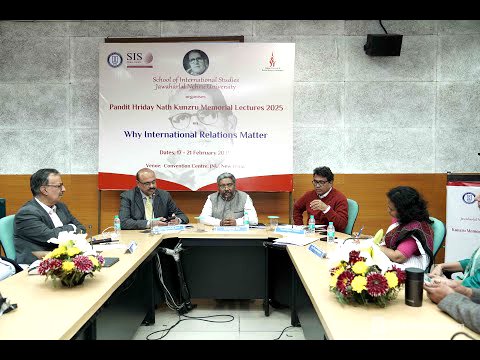TLDR;
This video discusses the significance and benefits of celebrating Mawlid, the commemoration of the Prophet Muhammad's birth. It highlights that Mawlid is an expression of gratitude to Allah for the blessing of the Prophet, who guided humanity to worship Allah correctly. The speaker emphasises the importance of poetry in remembering the Prophet's life and teachings, and encourages participation in Mawlid gatherings to foster love for the Prophet and his Sunnah. Additionally, the video includes announcements about upcoming events and requests for prayers for those who are ill or have passed away.
- Mawlid is an expression of thanks to Allah for the Prophet Muhammad.
- The Prophet is the greatest blessing and guide for humanity.
- Poetry and gatherings remind us of the Prophet's life and teachings.
- Loving the Prophet inspires us to follow his Sunnah.
- Announcements of upcoming events and requests for prayers.
Introduction: The Significance of Mawlid [2:41]
The speaker begins by expressing praise to Allah and highlighting the blessed occasion of Jumu'ah in the month of Rabi' al-Awwal, a month of celebration and commemoration of the Prophet Muhammad. He asserts that celebrating the Prophet is, in essence, celebrating Islam, as the Prophet is the most potent symbol of the faith. The speaker mentions the nightly Mawlid programs at the Masjid and expresses his intention to discuss the great benefits of Mawlid gatherings. Many scholars consider Mawlid gatherings to be the greatest gatherings Muslims can participate in.
Expressing Gratitude to Allah [4:55]
The first benefit of Mawlid is that it serves as an expression of thanks to Allah for the blessings He has bestowed upon us. These gatherings involve praising Allah. The Quran encourages us to mention and express thanks for the bounties and blessings from Allah. Acknowledging that blessings like good health come from Allah is crucial, as many people attribute their achievements solely to their own efforts. Expressing gratitude for these blessings is a natural human response. The speaker uses the example of someone helping another to get a job, illustrating that while thanks are given to the person who helped, ultimately, the thanks are due to Allah.
The Prophet Muhammad: The Greatest Blessing [7:50]
The speaker emphasises that the greatest blessing in our lives is the Prophet Muhammad. This is a fact that we need to remind ourselves of constantly. The magnitude of this bounty is immeasurable, as the Prophet shows us the way for salvation in this world and the hereafter. Without the Prophet, we would not know how to properly worship Allah. The speaker shares a story about attending an interreligious conference where he observed a non-Muslim scholar engaging in unconventional worship, highlighting the importance of divine guidance. He references a teaching that states whoever Allah guides is truly guided, and whoever Allah does not guide will never find guidance.
Guidance Through the Prophet's Teachings [11:13]
The speaker provides examples of how the Prophet Muhammad's teachings guide even the simplest aspects of our lives, such as knowing how to pray, what to eat, and which hand to use. He contrasts this with the practices of other cultures, where customs may seem strange to Muslims. The Prophet's guidance is a great bounty and blessing in our lives. Without it, we would be lost. All the details in our lives are guided to Allah because we follow the Prophet.
Mawlid: Remembering the Prophet's Seerah [13:07]
The speaker reiterates that the Prophet Muhammad is the greatest gift from Allah. Mawlid gatherings serve as a reminder of the Prophet's life and teachings. The speaker notes that Mawlid is perhaps the most effective way of learning and being reminded about the Seerah (biography) of the Prophet. One common practice during Mawlid is reciting poetry, which helps to remind people about the Prophet's life.
Poetry and the Transfer of Knowledge [13:47]
The speaker shares a popular poem recited during Mawlid, which recounts the welcoming of the Prophet Muhammad by the people of Medina upon his arrival from Mecca. He explains the symbolism in the poem, such as the use of the word "Badrun" (bright moon) to denote beauty. The speaker mentions that the Prophet never stopped the Muslims from welcoming him in this way; he encouraged it. The speaker explains that knowledge is transferred through poetry. He gives examples of how poetry is used in various Islamic sciences to summarise and codify knowledge. He shares his experience of memorising the Alfiyya of Imam Malik, a poem containing all the rules of Arabic grammar.
The Importance of Tradition and Culture [19:43]
The speaker highlights the practice of holding Mawlid gatherings daily at the University of al-Qarawiyyin in Fez, Morocco, where they recite the Quran and instill a culture of love for the Prophet in children. He emphasises that scholars have said that Mawlid is the greatest gathering one can be in. He encourages families, especially children, to participate in these gatherings to grow up in the culture of Mawlid and love for the Prophet.
Love for Allah and the Prophet [21:21]
The speaker quotes a verse from the Quran, highlighting that if you love Allah, you should follow the Prophet Muhammad. Loving and following the Prophet will cause Allah to love you and forgive your sins. When you truly love the Prophet, you are inspired to live his Sunnah. The speaker encourages the audience to love the Sunnah of the Prophet and emphasises that Mawlid is a vehicle towards achieving this noble objective.
Announcements and Upcoming Events [24:05]
The speaker announces upcoming events, including a special Mawlid program, a sacred knowledge seminar, and a family program. He encourages the audience to attend and participate. The sacred knowledge seminar will cover important practical matters related to death and dying in Islam, including the conditions during illness, before death, during death, and after death. The speaker also mentions the need for sponsors to support these programs.
Salawat and Sunnah Project [28:25]
The speaker reminds the audience to recite salawat for the Prophet Muhammad and encourages them to implement at least one Sunnah in their lives each week. He also mentions the TV program and Quran classes for adults.
Requests for Dua [29:18]
The speaker concludes by making requests for Dua (prayers) for those who are ill or have passed away. He asks for prayers for his father, Brother Ali Baku, who is ill, and for sister Aisha, who passed away in Trinidad. He also asks for prayers for Sheikh Kabir, who is leaving for Umrah, and requests him to make special Dua for them as well. Finally, he asks for prayers for Kazi Bashir. He reminds the audience to visit the donation boxes before leaving.









